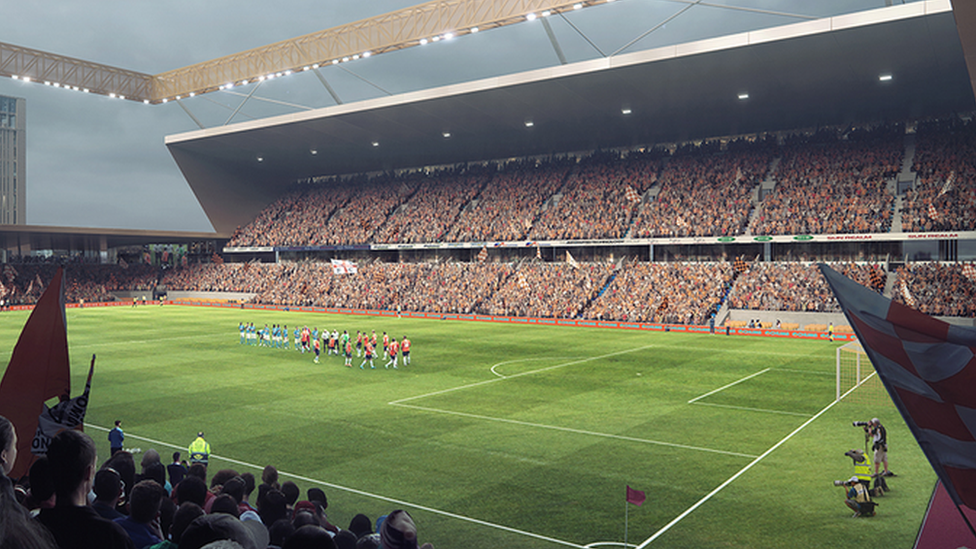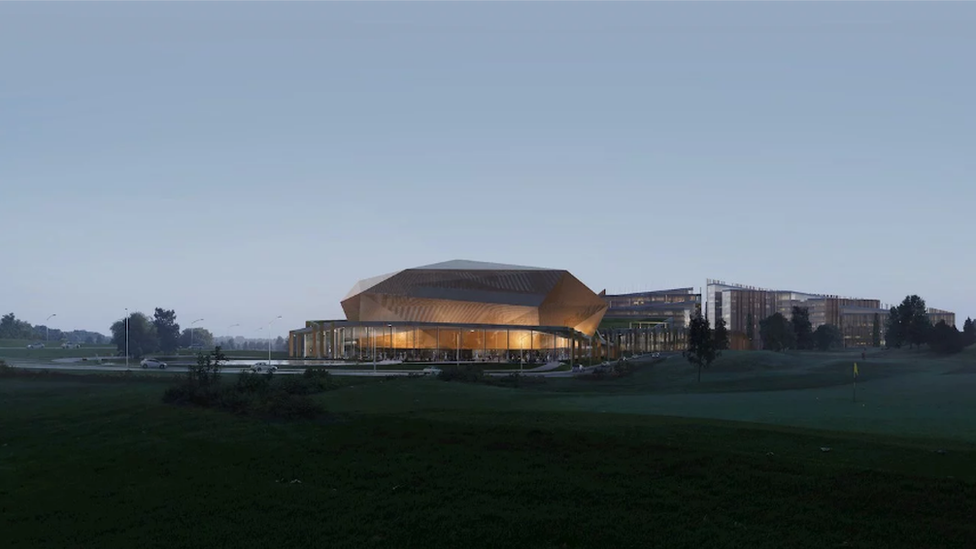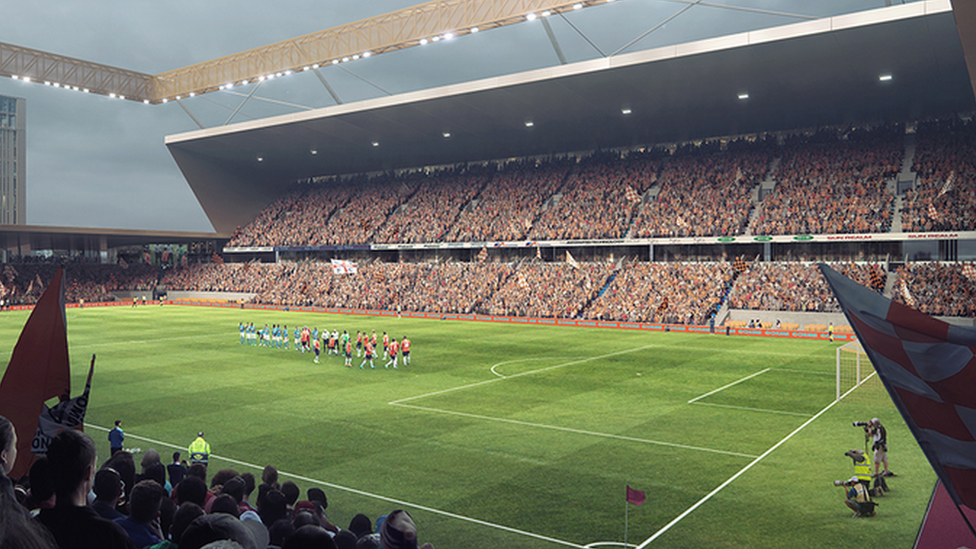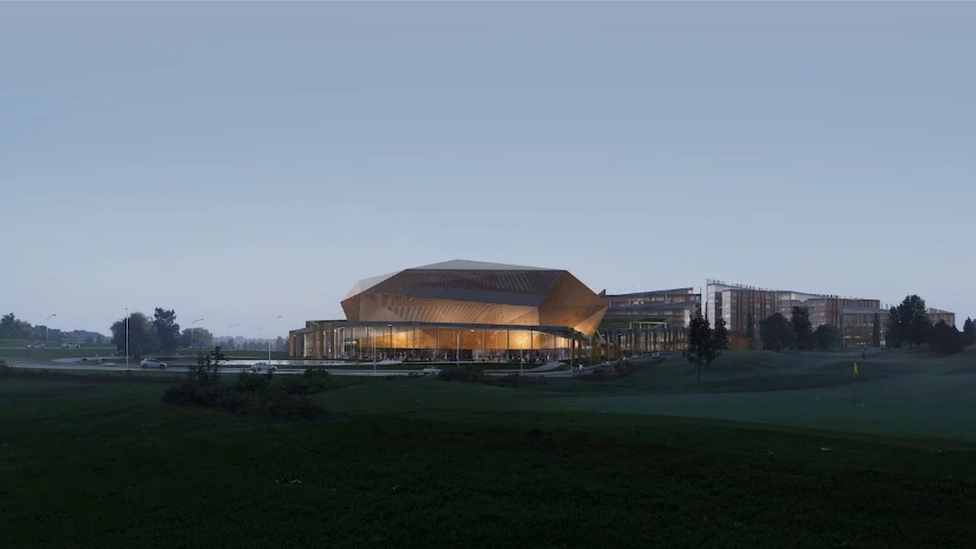Luton Town: Mall owners take legal action over Newlands Park plans
- Published

The development at Newlands Park will help finance Luton Town's new 23,000-capacity stadium
A shopping centre owner is taking legal action to halt plans crucial to the development of a new football stadium.
Capital and Regional, which owns the Mall in Luton, said granting planning permission for the Newlands Park development at junction 10 of the M1 was "unlawful".
The leisure facilities and shops scheme will help finance Luton Town Football Club's new town centre stadium.
The BBC has approached Luton Town for comment.
The club's 23,000-capacity town centre ground at Power Court was granted planning permission by Luton Borough Council in January and plans for the Newlands Business Park on land near to the M1 were approved two months later.
The Newlands development would include offices, a hotel, park and ride and retail and leisure facilities.
The Power Court project also includes a live venue, leisure and retail facilities and homes.

The development near junction 10 of the M1 will be a mixture of retail and leisure space
The plans had met objections from retailers, including Capital and Regional, who were concerned the developments could harm Luton town centre and nearby towns.
In a letter released by the council, Capital and Regional confirmed it would be applying for a judicial review, saying the council's determination of the application was "flawed" and "the grant of planning permission was unlawful".
Deputy leader of the council Sian Timoney said a judge would decide if the application could go forward to a full judicial review but while this process is going on, which could take about six weeks, work could not begin on Newlands Park.
"Capital and Regional are saying that something that happened in the planning process for Newlands Park, that was, in their view, enough to make the decision unlawful," she said.
"Ultimately the judge can decide the judicial review is unsuccessful and [planning] permission stands but if it is successful then the original planning decision is quashed."
If that happened, then planning permission would have to applied for again, she added.
- Published10 August 2019

- Published10 April 2019

- Published11 March 2019

- Published1 March 2019

- Published16 January 2019
